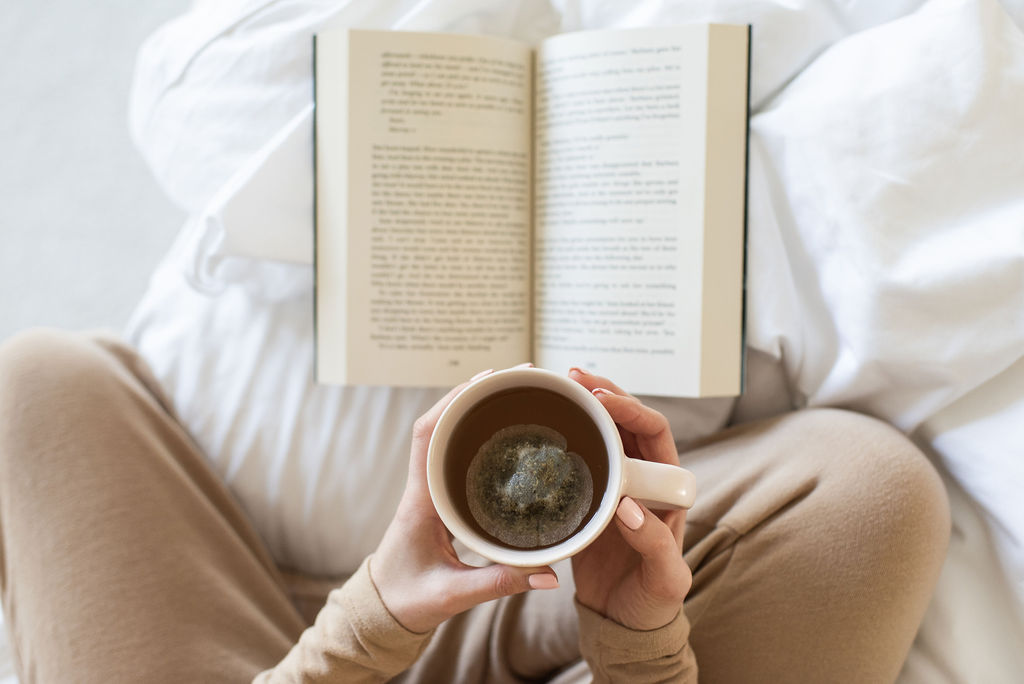7 Stress-Busting Tips to Recover from Holiday Adrenal Fatigue


I think we all know that feeling. It’s about a week before your period, and you’re feeling irritable, bloated, tired, and zapped of all that gusto you just had last week.
But then it comes time for bed and you can’t seem to fall asleep! YOu were so tired during the day, so what gives?
Sleep disruption in the luteal phase (before you start your period) is actually very common, with around 23% of women reporting difficulty sleeping at the end of their cycle.
Let’s look at why and what you can do to combat it and get those much needed zzz’s.
During your luteal phase, the hormone progesterone is at its highest peak. One of the effects of this heightened hormone is that it actually makes you drowsy. Because of its drowsiness, many women grab an extra cup of coffee in the afternoon to try and power through the day. This leads to caffeine still being in your system at bedtime and interrupting your sleep. Also, during your period, levels of progesterone will drop dramatically which can also cause sleep disturbances.
Be gentle with yourself during this phase in your cycle, and don’t expect the same level of productivity as you had during your follicular or ovulation phase. Limit caffeine in the latter half of the day, and try taking a nap or going for a little walk instead.
Shifting hormones (estrogen and progesterone imbalance) can cause mood shifts which can make it difficult to fall asleep at night.
It’s important during this phase in your cycle to recognize that there are hormones that are contributing to the mood. Knowing that you can ease up on ‘figuring it all out’ a little bit and let your brain turn off for sleep. This is also a great time to reach out to your support systems to help you navigate any emotions rising.
After you ovulate and into your period, your basal body temperature, or ‘resting body temperature’ can elevate slightly, which can lead you to ‘sleeping hot’ which disrupts your natural sleep cycle.
Try sleeping with less covers or adjusting your thermostat slightly lower during this phase of your cycle.
Other PMS symptoms like bloating, headaches, or breast tenderness can make it hard to fall asleep as well.
Working to balance your hormones can help alleviate sleep disruption during this phase as well as reduce PMS symptoms overall! Reduce any inflammatory foods such as sugars, caffeine, alcohol, and processed foods, get plenty of water, and be sure to get lots of fibre as that actually helps clear excess estrogen from your body.
Supplements like Vitamin B6, Evening Primose, and Chasteberry can also help reduce PMS symptoms when taken throughout the cycle. Just be sure to consult with your healthcare provider before adding any supplements to your diet.


This blog post was written by our guest writer, Dr. Marita Schuach. She’s a naturopathic doctor from Vancouver Island, focusing on preventative healthcare & health education.